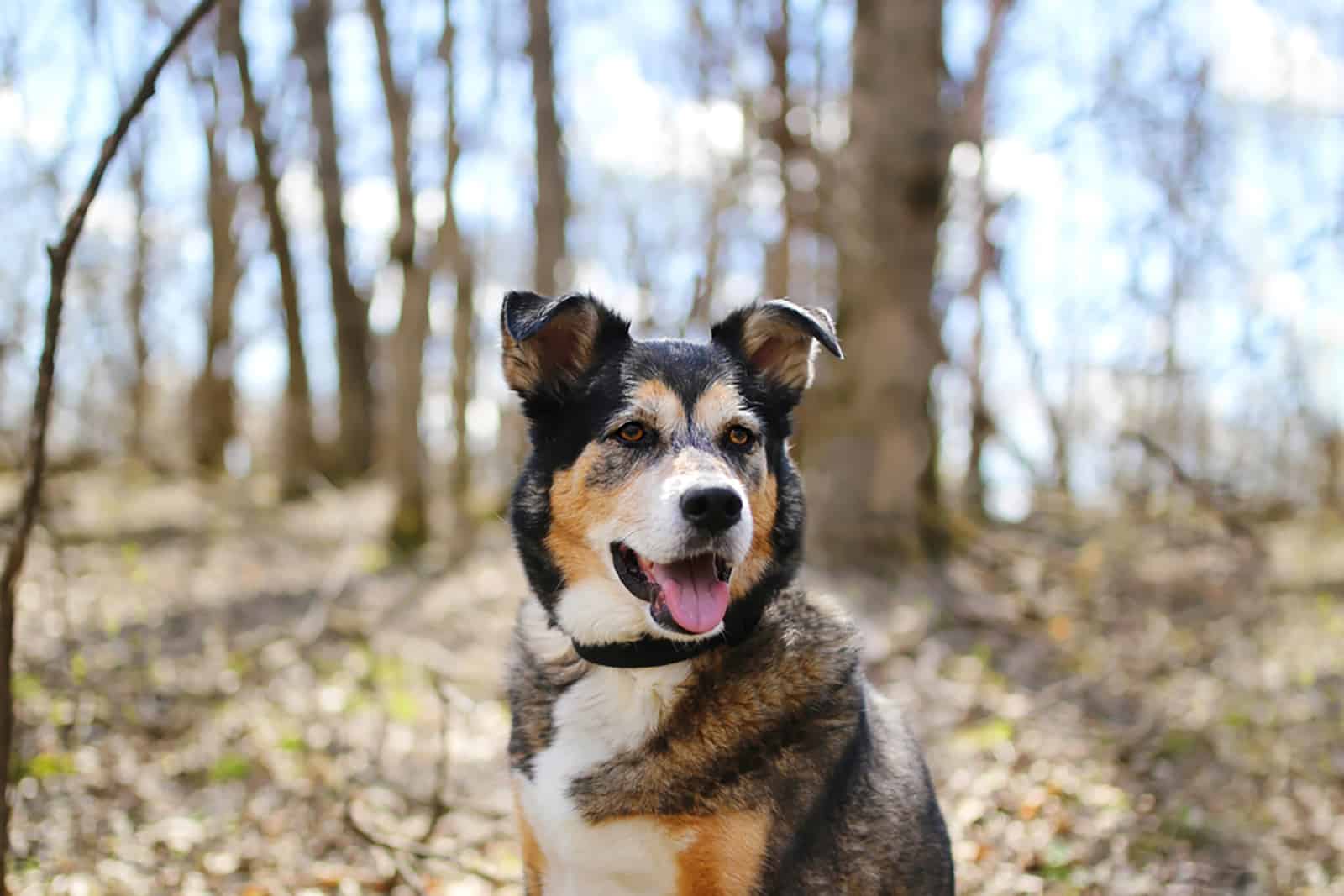Have you ever heard of a dog that is supposed to be a smaller version of the all-time favorite shepherd? Of course, we are talking about German Shepherds — the finest all-purpose working dogs in the whole canine world.
But, what if I told you that you can get all of that, just in a smaller, much cuter size (not that the standard ones aren’t cute, but we have to admit that those small breeds simply melt our heart)!
Yes, to cut to the chase, there are Miniature German Shepherds that combine all the awesome German Shepherd qualities that we simply adore, and they are presented in a smaller size.
So, what are Mini German Shepherds? Are they exactly like standard full-sized GSDs?
To find the answers to these questions and much more, keep on reading because we present you with the ultimate guide for this miniature breed.
Here is everything you should know about this interesting German Shepherd dog. Let’s visit the world of minis!
Is The Miniature German Shepherd A Purebred Dog?
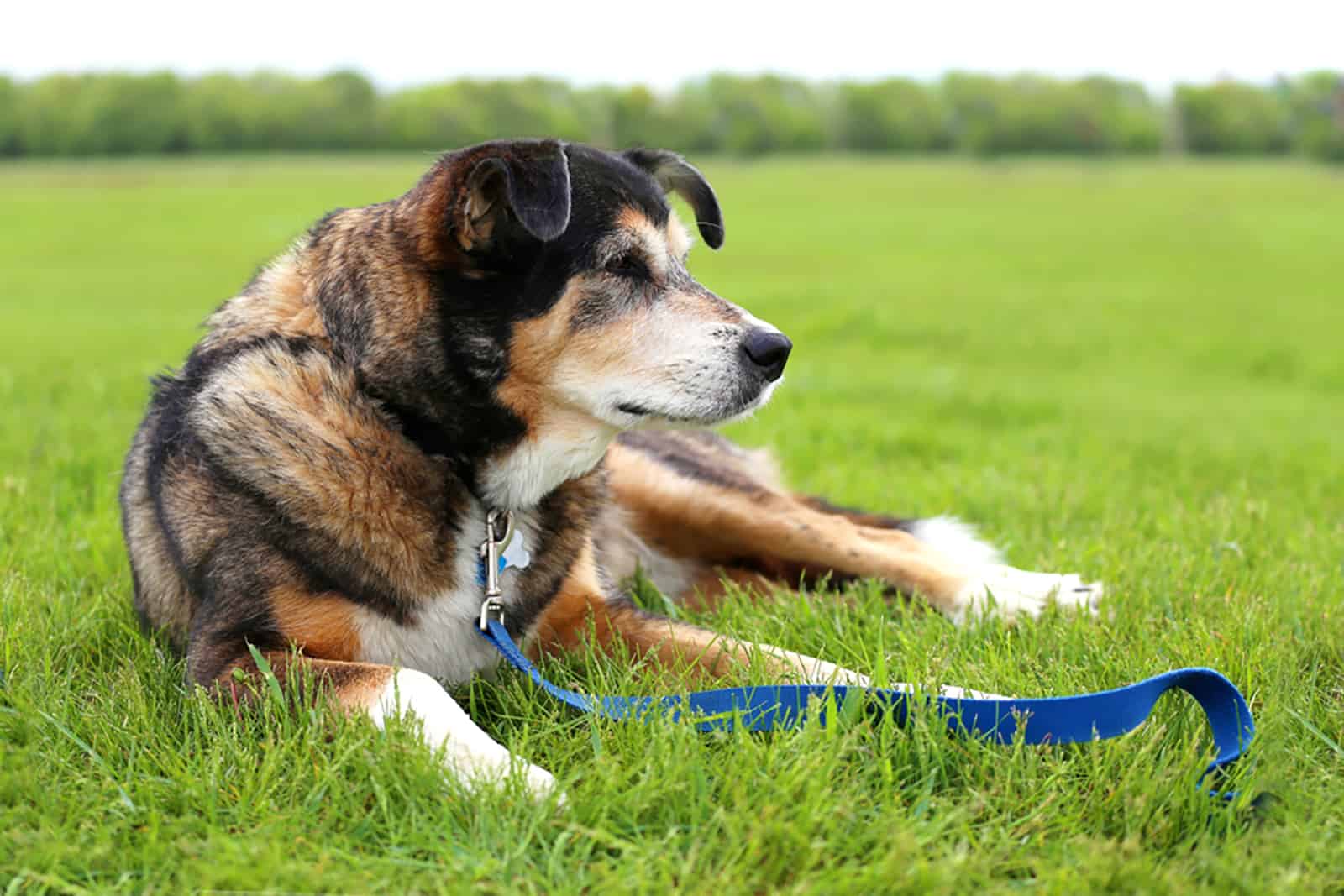
Although many people think at first that they are purebred dogs because of their name, the Miniature German Shepherd is actually not a purebred dog.
They are actually designer dogs, or simplified, a mixed breed between a standard German Shepherd and a medium or small-dog breed.
The most common dog breeds used in this crossbreeding are Border Collies and Poodles; however, sometimes, some other breeds can be used, such as Golden Retrievers, Siberian Huskies, Pugs, Corgis, Yorkshire Terriers, or some other small herding breeds.
The other parent breed usually gives a mini GSD signature, with a smaller breed size and certain temperamental characteristics. Let’s meet the parent breeds and introduce their most important traits.
German Shepherd
According to many sources, and especially according to a lot of happy German Shepherd owners, these are one of the best dogs that are loved around the world. Many people around the world simply adore them and always choose them as their family pets.
The German Shepherd dog originates from a family of German herding dogs, when in the late 1800s, the German officer, Von Stephanitz, decided to make the ideal German herder. Those dogs are considered to be the first ancestors of today’s GSDs.
They are large, muscular dogs that are considered to be the best all-purpose working dogs in the whole canine world.
Not only are they versatile dogs that can be good at so many jobs, but they are also loyal and gentle family dogs that defend the ones they love.
Courage, intelligence, skills, and confidence are said to be their most admirable traits, which make them a great choice for crossbreeding.
If you are interested in learning more about different German Shepherd mixes besides Miniature German Shepherds, check out some of these articles:
• The Bullmastiff – German Shepherd Mix: Need-To-Know Facts
• German Shepherd Lab Mix: The Two Most Popular Dogs In One
• Blue Heeler German Shepherd Mix: Meet This Mesmerizing Breed
Border Collie
Border Collies are said to be the most intelligent dog breed in the entire canine world, and they are also remarkable workaholics. They are the perfect choice for crossbreeding with other amazing working dogs.
Borders are athletic, medium-sized dogs that, on average, stand around 22 inches tall.
The history of Border Collies begins in the rocky mountains of Wales and Scotland, with crossing the old Roman dogs with the Viking spitzes, which resulted in one of the best herding dogs out there.
They were recognized as a part of the herding group by the American Kennel Club in 1995, and since then, they have been very popular. Agility, balance, and trainability are the breed standard.
Not only are they extremely athletic and energetic dogs, but they can also be loving and affectionate pups that love to cuddle with their owner. Although they can be aloof with strangers, they are usually very friendly and good with children.
Poodle
The Poodle is the other dog breed that is very often used in the crossbreeding process to create the Miniature German Shepherd.
Their amazing qualities soon started to be noticed by many dog lovers, which made them become very popular in recent years.
The all-time favorite Poodle is considered to be France’s pride and joy; however, it actually comes from Germany, where it was originally bred (400 years ago) to be a retrieving water dog.
When you research a little bit, you will find that their name actually comes from the German language used to depict the action of splashing in the water; hence, the water retriever.
There are three different Poodle sizes (standard, miniature, and toy) – each of them being even more adorable. The most important characteristics of the Poodle breed are intelligence, a curly and hypoallergenic coat, low-maintenance, athleticism,
friendliness, and a docile temperament.
All of this, combined with their easy-going and loving nature, makes them the perfect choice for any designer dog combination.
German Shepherd Dwarfism
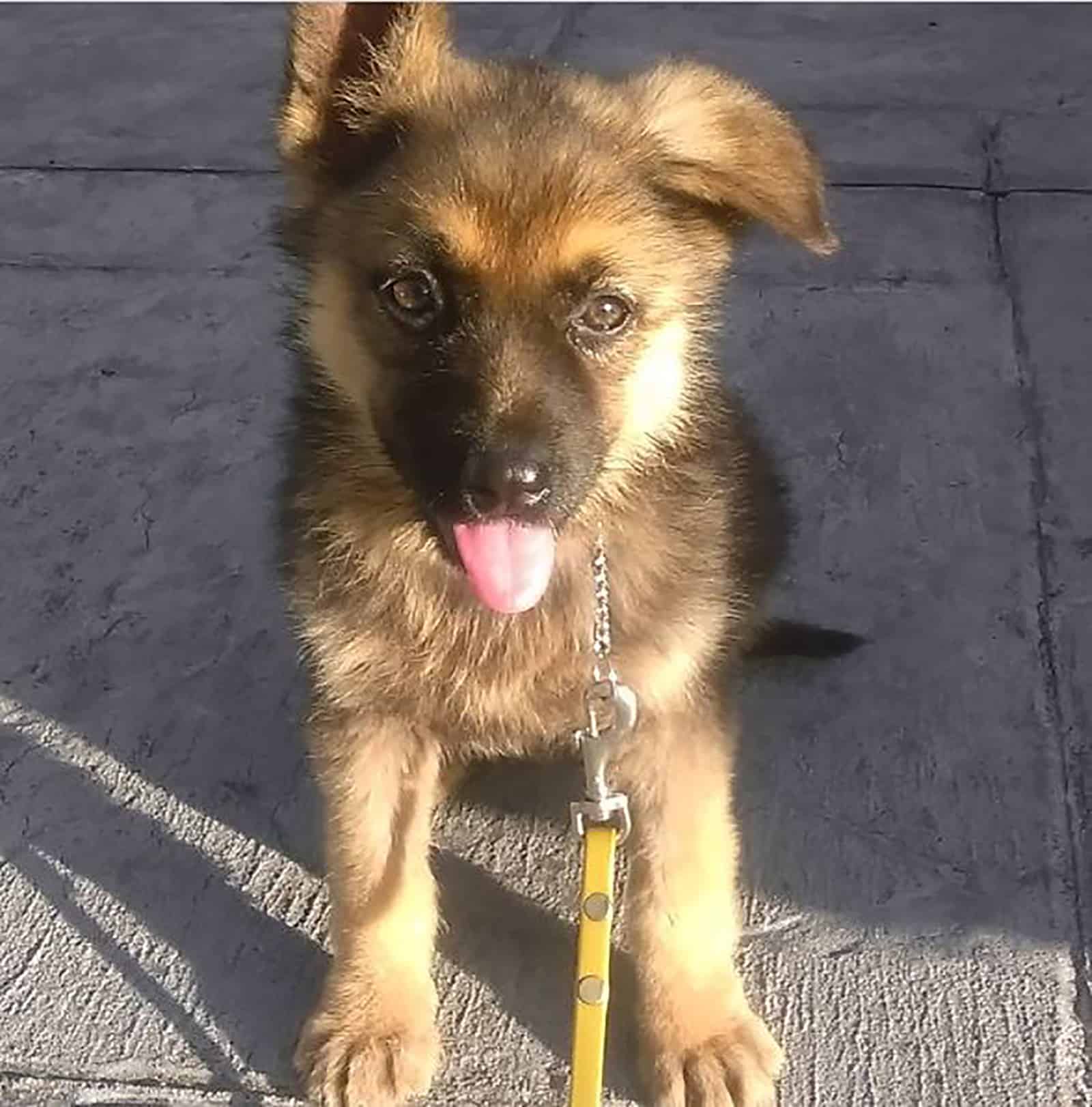
Photo from: @sasha_the_dwarf_germanshepherd
We have already learned that Miniature German Shepherds are designer dogs, but there are also very small purebred German Shepherds that are a result of a condition called dwarfism.
What is dwarfism, and how does it happen?
Pituitary dwarfism is a genetic condition that can happen in the German Shepherd breed, but it is fortunately very rare.
Due to an insufficient growth hormone, the growth of these dogs is slowed down, which results in unusually small purebreds with many health problems and a lower lifespan.
Both parents have to be carriers of this faulty gene in order for a German Shepherd puppy to come out as a dwarf. It is estimated that around 20% of the German Shepherd population carries this gene.
Over the years, these puppies have started to be referred to as the runt of the litter, which is not exactly the nicest nickname.
This condition is a serious problem; therefore, it should be taken very seriously. If it is possible, the best thing is to prevent breeding the dogs that carry this faulty gene so that no “runt” is born.
The Miniature German Shepherd Breed Overview
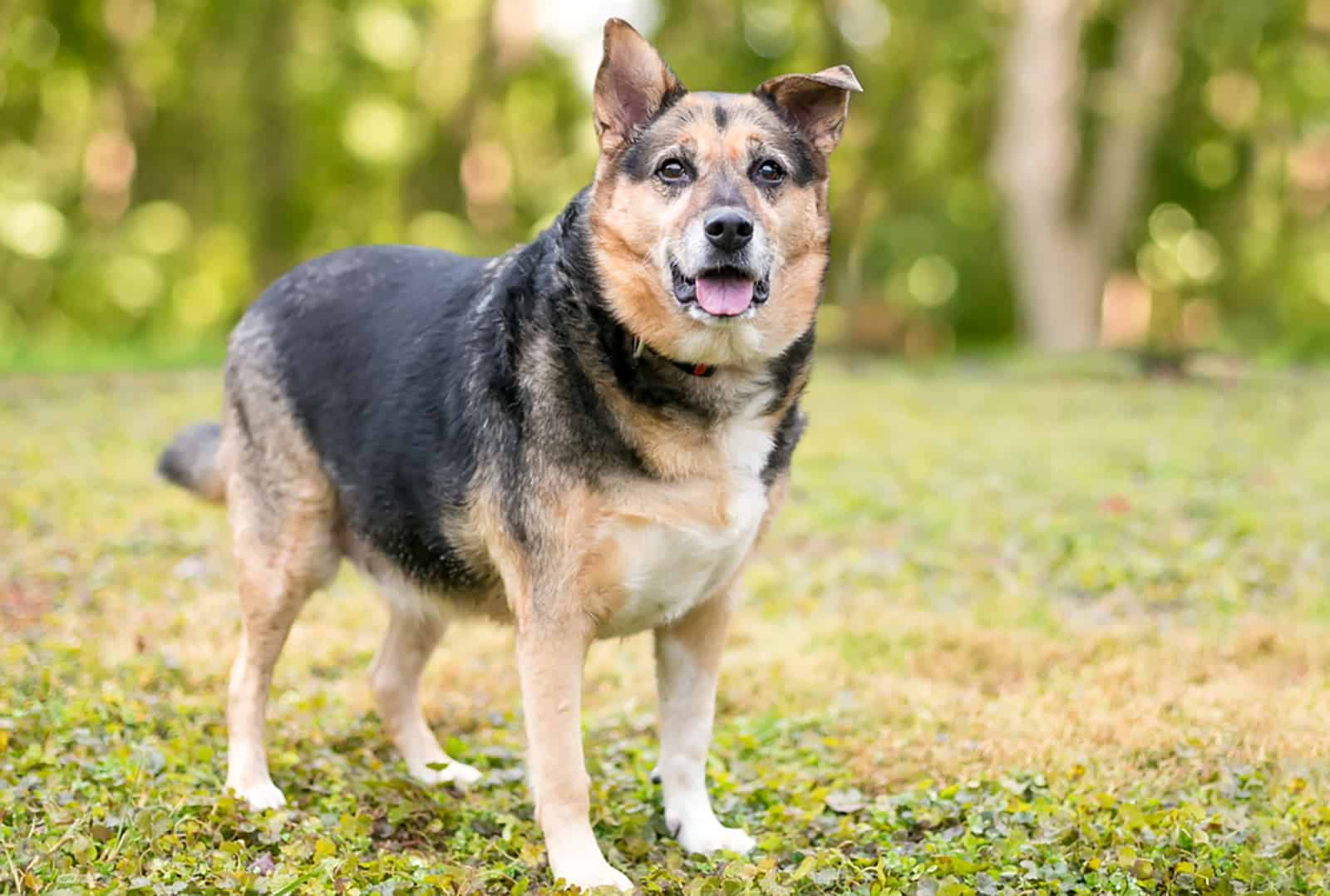
History Of The Breed
When most people hear of Miniature German Shepherds, they think of them as the smaller version of the purebred German Shepherd. To be completely honest, I was also like that in the beginning. However, this is not exactly the case.
We have already mentioned that they are not purebred dogs, but designer dogs made by crossing a purebred German Shepherd with another smaller dog. Although there are many possibilities, usually, the other breed is either a Border Collie or a Poodle.
With a German Shepherd dam, it is possible for each litter to have about six to eight mini GSD puppies on average.
While dogs that are used in the breeding process are recognized by the American National Dog Club, their mixed offspring are not, and therefore, they don’t have a breed standard.
There is not much information on how and when the breeders came up with the idea to breed Miniature German Shepherds, but it is expected that they wanted to have a dog that would have all the amazing characteristics of the purebred dogs, but in a much more compact and adaptable size.
Temperament
These mini Shepherds are loyal, energetic, loving, and hard-working dogs. Their personality usually leans more toward purebred German Shepherds, so you will notice a lot of similarities.
They are extremely intelligent dogs, which doesn’t surprise us at all, seeing that their smartness runs in their bloodlines. They also inherit unwavering dedication and loyalty, which makes them great guard dogs that will protect their family.
These pups are extremely energetic dogs with a strong work drive, just like their parents, which means that they enjoy working at something and having added challenges in their daily life.
Otherwise, they can become bored, and because of that, a little bit mischievous.
If they are trained correctly, they can be affectionate family pets and companions for everyone. They love to be around their family, and with their protective instincts, they will be great family dogs.
However, they can also suffer from separation anxiety as they love to be around people, so if you are someone who doesn’t have enough time, and would leave this dog by itself a lot, then this pup is not for you.
Related: Are German Shepherds Aggressive? How to Deal With Such Behavior
Are Miniature German Shepherds Good With Kids?
The Miniature German Shepherd is a very child-friendly dog, just like most of its parent breeds. As we have mentioned already, if they are handled correctly, they can be great family dogs that are safe to be around small children.
Although they are loving and can bond well with children, they still require proper training and socialization. When socialized early, they will have no problem living with children.
On the other hand, they might not be great with other small family pets since they usually inherit a high prey drive, but that is not something that cannot be changed with proper training.
If you perhaps have cats as pets also, or if you’re thinking about bringing a kitty cat into your family, definitely read, Are German Shepherds good with cats to know what to expect.
Appearance
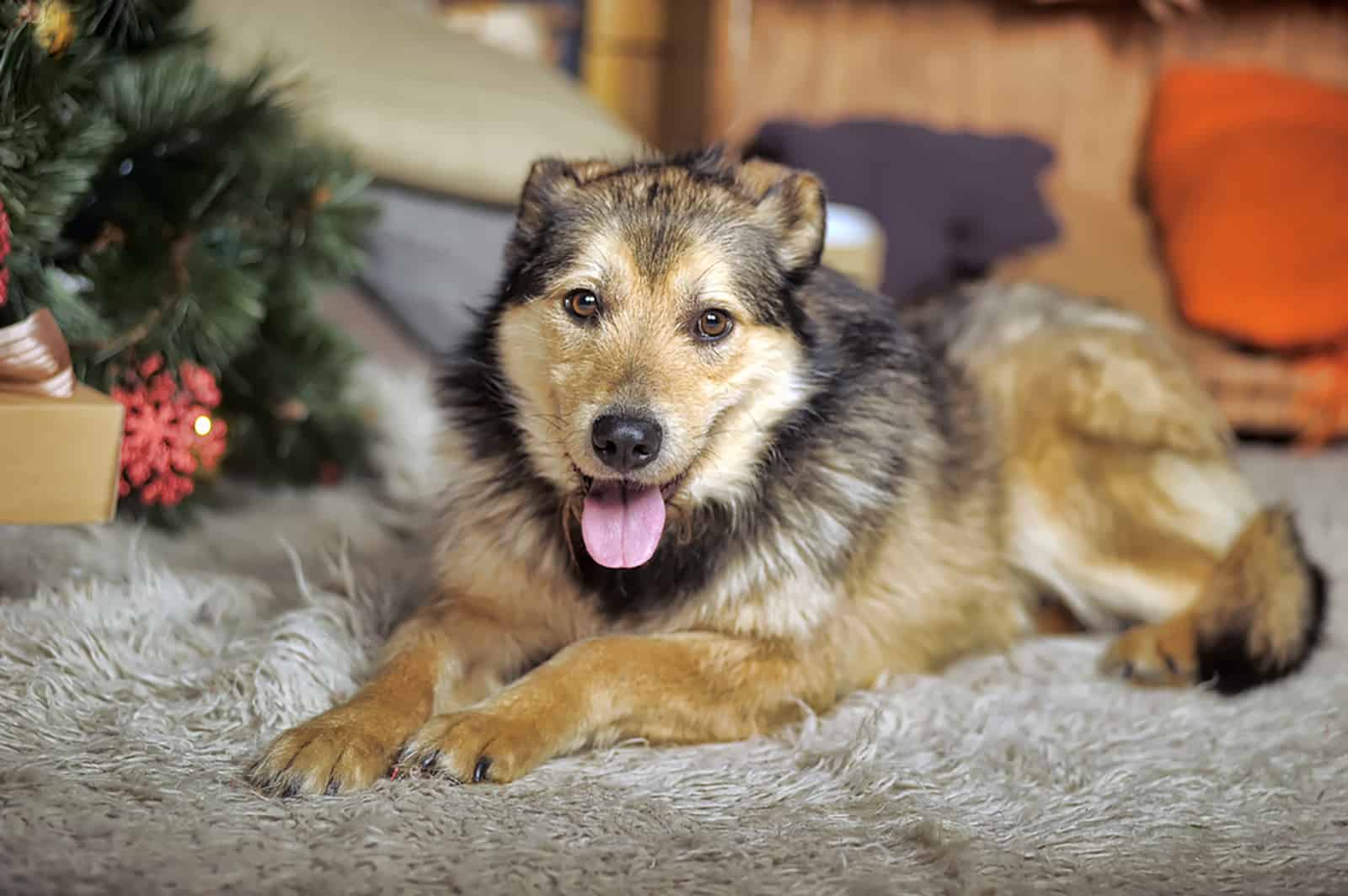
Mixed breeds are always tricky business when it comes to appearance, as you can never be sure how they will end up looking.
Usually, mixed dogs do not inherit strictly 50% of the characteristics from each parent – certain parent genes dominate others.
The Miniature German Shepherd, in most cases, tends to have the signature appearance of a purebred GSD. They come in a smaller size, but they have their personality and wonderful temperament.
They usually end up with the same characteristics as their bigger relatives: athletic body type, double coat, large and pointy ears, and bushy and downward-curving tail.
However, this appearance is never 100% guaranteed since they sometimes can end up with some different characteristics that come from different parent breeds.
Size And Weight
The true size of the Miniature German Shepherd will depend on the type of the parent breeds used in the crossbreeding process, but they certainly live up to their name of the miniature being a small- to medium-sized dog.
They usually stand 15 to 20 inches tall, and weigh less than 50 pounds (between 30 and 50 pounds), which makes them much more compact than standard-sized GSDs that, according to the German Shepherd growth chart, when fully grown, stand at 24 inches tall, and weigh 50 to 90 pounds on average.
The Miniature German Shepherd Growth Chart
[table id=504 /]
Coat Type And Colors
The Miniature German Shepherd has a thick, double coat that can come in various coat colors. They have roughly the same coat colors and markings as a German Shepherd.
Their double coat comes with a slightly wavy outer coat that can come in a variety of colors, such as black and tan, sable, white, black, red, or silver. The hairs are usually short to medium, or simply medium length.
If you would like to read more about standard German Shepherd colors, take a look at these black, white, and sable dogs, or some more rare ones such as the blue, liver, or isabella GSD.
Do Mini GSD Shed?
We all know that standard German Shepherds are big shedders, but what about the Mini GSD? Do they also inherit their shedding habits?
Miniature German Shepherds are also natural shedders, just like their full-sized parents.
This is quite expected due to their thick, double coat that sheds all year round, especially during the shedding season where they are known to “blow their coat”.
During this time, you can expect to see a lot of hair everywhere, so if you were hoping for a dog that sheds less than a GSD, unfortunately, this mini GSD is not it.
When dogs blow their coat, large clumps of hair fall from their coat due to the change in temperature, which is why this happens the most during the season changes, in the spring and in the fall.
When it is fall, the coat changes to a thicker and warmer one to prepare for the winter and colder temperatures, but when it is spring, their coat changes to a lighter one so they can survive the hot summer weather.
Although they are indeed big shedders, the silver lining is that sometimes (depending on which purebred dog is used in the crossbreeding) it can happen that some mini GSDs shed slightly less than most other breeds.
This can be seen in the Shepadoodle (German Shepherd and Poodle mix) because Poodles are low shedders, so if the mini GSD inherits more Poodle genes, it is more likely that they will shed less than others, but this is usually very rare.
Read also: Do Sheepadoodles Shed? All You Need To Know Before Buying
Are Mini GSD Hypoallergenic?
Miniature German Shepherds are not hypoallergenic dogs. Everyone who has had them as pets knows that they shed nearly the same as standard German Shepherds, especially during the shedding season.
So, if you are someone who is allergic to dog hair, this dog is not exactly the right one for you, even if a hypoallergenic breed like the Poodle is used in the crossbreeding process.
As we said already above, they might shed a little bit less, but it is nearly impossible for them to be hypoallergenic.
If you are interested in this topic, we recommend checking out “Are Sheepadoodles hypoallergenic” to find out all the important answers to this question!
Grooming And Care
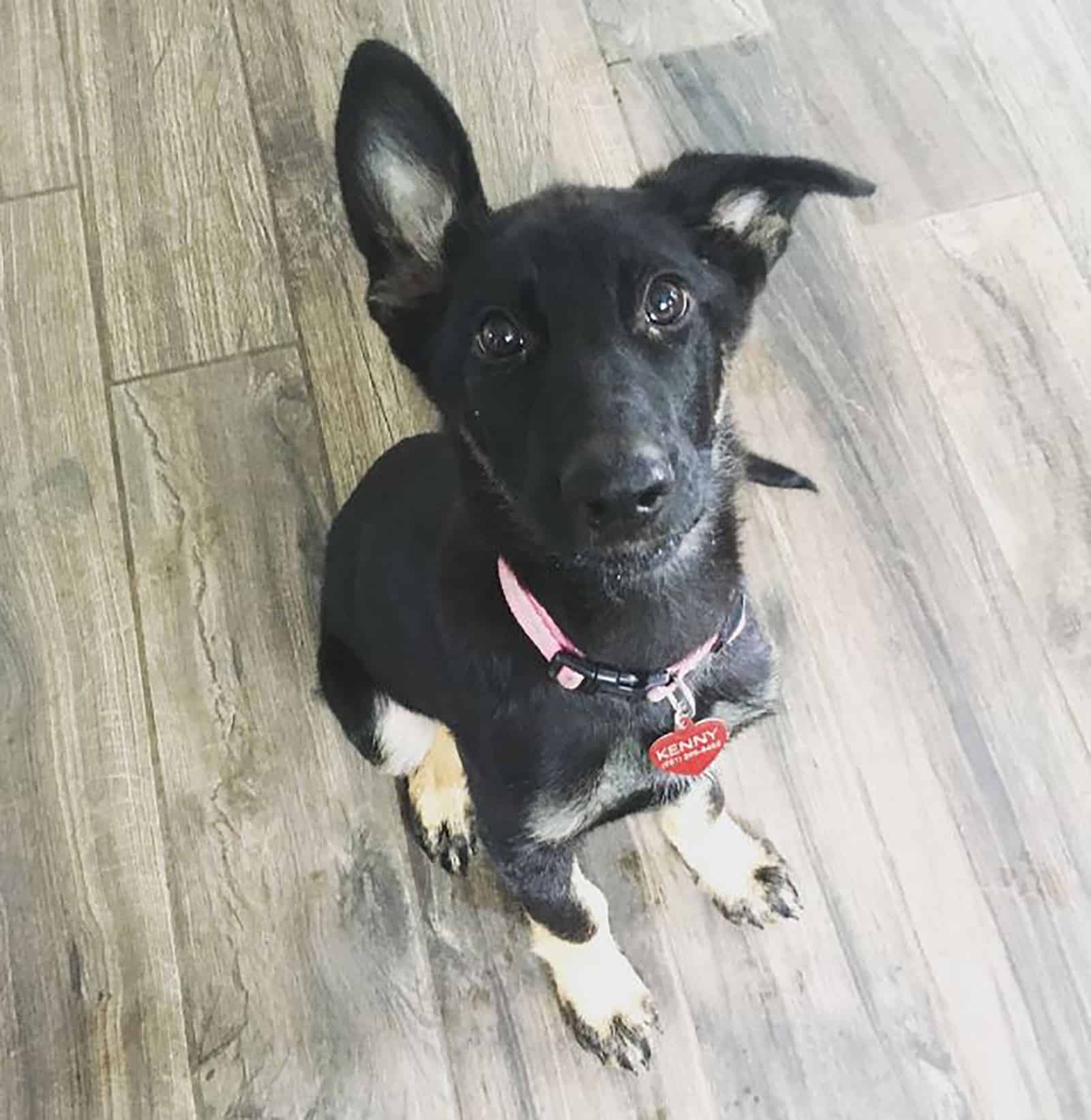
Photo from: @navietheminishepherd
When you have a pup that is known for being a shedder, you must know some tips and tricks on how to properly take care of him and keep him looking fresh, clean, and healthy. Let’s see how to groom your Miniature German Shepherd like a pro!
Brushing
Regular brushing is a must for this type of mixed breed dog since they are heavy shedders. When it is shedding season, you will probably need to brush them every day since they are known to blow their coat off.
Since this is quite a messy process, make sure that you find an appropriate place to do it, such as the bathroom. You should first start with a high-quality undercoat rake or de-shedding tool.
Start with the dog’s back and hindquarters, then move your way up to the sides, chest, legs, and tummy.
Make sure that you are gentle, and that you don’t miss any spots; however, be careful of going too many times over one place as it can irritate their skin and cause them pain.
After this, you may use a slicker brush and gently brush the topcoat as this will help remove the excess hair and leave your dog’s coat looking shiny and lustrous.
If you need some help in choosing a high-quality brush for your mini GSD, check out what the best brushes for German Shepherds are as this may help you find the one that suits you the best!
Bathing
When it comes to bathing, this dog should be bathed when needed (when dirty or smelly), but not too often because this can strip your dog’s coat from its natural oils that keep your dog healthy.
When bathing, pay special attention to the type of shampoo you are using. Use only dog-friendly shampoos as they are gentler on the dog’s skin.
Gentle dog shampoos are without alcohol, sulfates, or other striping ingredients that can irritate sensitive skin.
Recommended: Can You Use Head And Shoulders On Dogs? Detailed Explanation
Massage the shampoo deep into your dog’s double coat, and rinse thoroughly afterward. Double-rinsing is recommended. Make sure to dry your dog completely when finished with bathing.
You can use an absorbent towel or even a dryer; however, when using a dryer, you need to be careful not to leave it for too long in the same spot as it can burn the skin, and I am sure that no one wants that.
Read also: “how often should you bathe a German Shepherd?” to learn everything you need to know about bathing the Shepherd breed. Bathing tips are included!
Dental Health
Dental health is not something that should be ignored. Many dog owners are not even aware of how important dental care is for dogs.
German Shepherds are, unfortunately, prone to developing dental issues, so it is extremely important that you take special care of their teeth.
You should brush your dog’s teeth as much as possible – the more, the better. Ideally, it would be best to brush them every day; however, two to three times per week can also be sufficient.
Although you are brushing your dog’s teeth regularly, you should also take your dog to the vet to get his teeth professionally cleaned and checked at least once a year as they are prone to developing canine cavities, and it is important that a professional checks if everything is alright.
The sooner you start brushing your dog’s teeth, the better, as they will get used to it and will not make a scene out of it. It will be easier for you and better for them.
Read also: German Shepherd Teething: What To Expect And How To Help
Nail Trimming
Your Miniature German Shepherd’s nails should be trimmed once a month. For the equipment, you will need a sharp pair of clippers and a steady hand so that you don’t cut too much of the nail; otherwise, you will hit the quick and cause pain.
Do this process in a comfortable environment, and try to make it as positive as possible so it will be easier for your pup since some of them are scared of it or don’t like it at all.
Afterward, try to reward your dog with a nice treat for being a good boy.
Related: Can I Walk My Dog After Cutting The Quick? Here’s What You Should Do
Ear Cleaning
A dog’s ear cleaning is also an important part of his grooming process. With Miniature German Shepherds having large ears, they are prone to building up and developing ear infections, which is why it is important to regularly check and clean their ears.
Try cleaning them a couple of times a month, depending on how much you bathe your dog. You will need some kind of cotton balls or wipes, a vet-approved cleaning solution, and a toy to keep your dog distracted.
Make sure that you do it in a calm environment, and that your pup is calm, quiet, and still. Afterward, you can reward him with a treat.
Read also: Dog Ear Plucking: Necessary Or Harmful? A Guide To Dog Ear Care
Exercise Needs
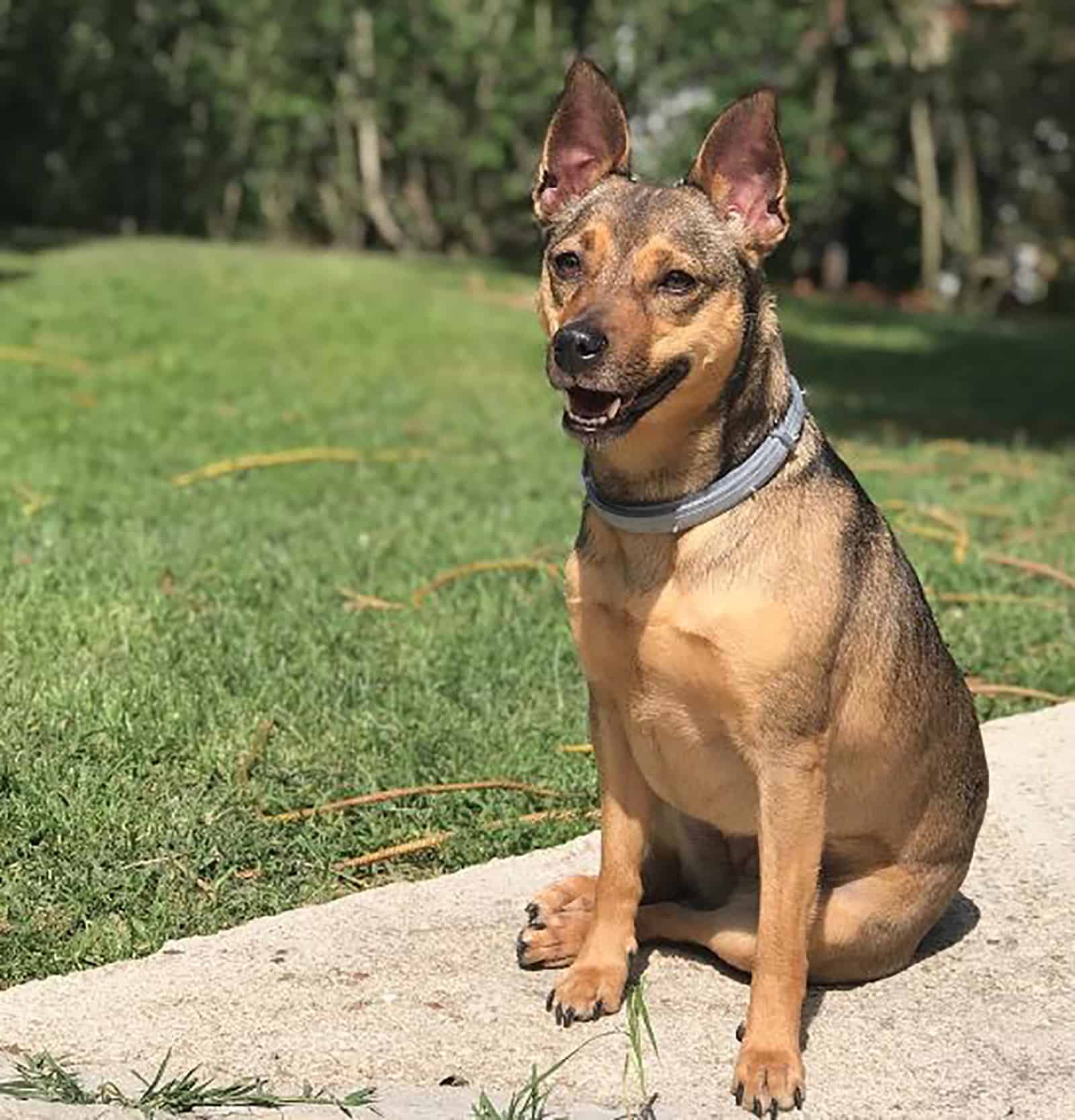
Photo from: @bar_raiter
Miniature German Shepherds are high-energy dogs that need a lot of physical and mental stimulation in order to stay healthy. Usually, around one to two hours of exercise per day is recommended to keep them happy and not bored.
Although they are smaller, they still need various kinds of activities just like their bigger versions. If they don’t receive enough exercise, they will easily become bored and most likely cause some mischief.
They especially like intensive exercises where they can burn off all that energy that is inside them.
Going for walks, hikes, running, herding, or agility exercises are just some of the activities that they enjoy. The true miniature GSD motto is “the more, the better”.
For most breeds of dogs, especially these intelligent dogs, mental stimulation is equally if not more important than physical stimulation.
Interactive games (like fetch or sniffing), some playtime, and puzzle toys will be great to keep them happy and healthy.
Training Needs
Mini German Shepherds are very bright and trainable animals. They are extremely versatile dogs that can be trained to perform a variety of tasks since they love having a job.
Guard dogs, herding dogs, watchdogs, and service dogs are just some of the amazing titles that these dogs adorn.
However, although they have a natural predisposition to be all of that, this mixed-breed dog also needs training to sharpen its skills.
When it comes to training, their owners need to pay attention to obedience, agility, discipline training, and also socialization.
The positive and fun training process based on positive reinforcement has proven to be the best.
Early socialization is very important for this breed because they inherit a prey drive, and they sometimes may react negatively around smaller animals.
With early exposure to different kinds of situations, people, and especially different kinds of animals, they should learn to behave well around them.
Training Types
• Obedience training – When it comes to obedience and discipline training, there are a few things everyone should know.
Teaching basic command words (like “sit” or “down”), being consistent, and using positive reinforcement with treats as rewards are the best ways to achieve amazing results.
• Potty training – Every puppy should be potty trained as soon as possible.
In the beginning, you might experience some setbacks; however, with correct training, patience, and the help of odor sprays and mats, your puppy will soon learn how to regulate his needs.
Related: Help, My Dog Is 6 Months Old And Not Potty Trained!
• Crate training – The sooner you crate train your puppy, the better it will be for him. This process should be slow, calm, and positive, so the pup feels completely safe in the crate. When the pup is crate trained, it is also easier to travel with him.
• Service dog training – German Shepherds are one of the best dogs as Emotional Support Animals and service dogs.
While ESAs don’t need any special training besides all of that we have mentioned above, service animals do require professional training to be able to perform their job.
Dietary Needs
Properly feeding your dog is extremely important if you want him to be happy and healthy. A fully grown mini German Shepherd should be fed three times a day with three cups of dry kibble.
Make sure that you choose high-quality kibble that is full of protein since they are active working dogs that need every bit of energy they can get.
If you, at some point, want to change their diet, please remember to do it gradually since any change can mess with their stomach and cause diarrhea or other health issues.
Since they are prone to developing bloat, it is recommended to use a slow-feeding bowl to encourage slower eating.
If you need some help with choosing which dog food is the best for your pooch, check out the 15 yummy choices for your German Shepherd.
How Long Do Miniature German Shepherds Live?
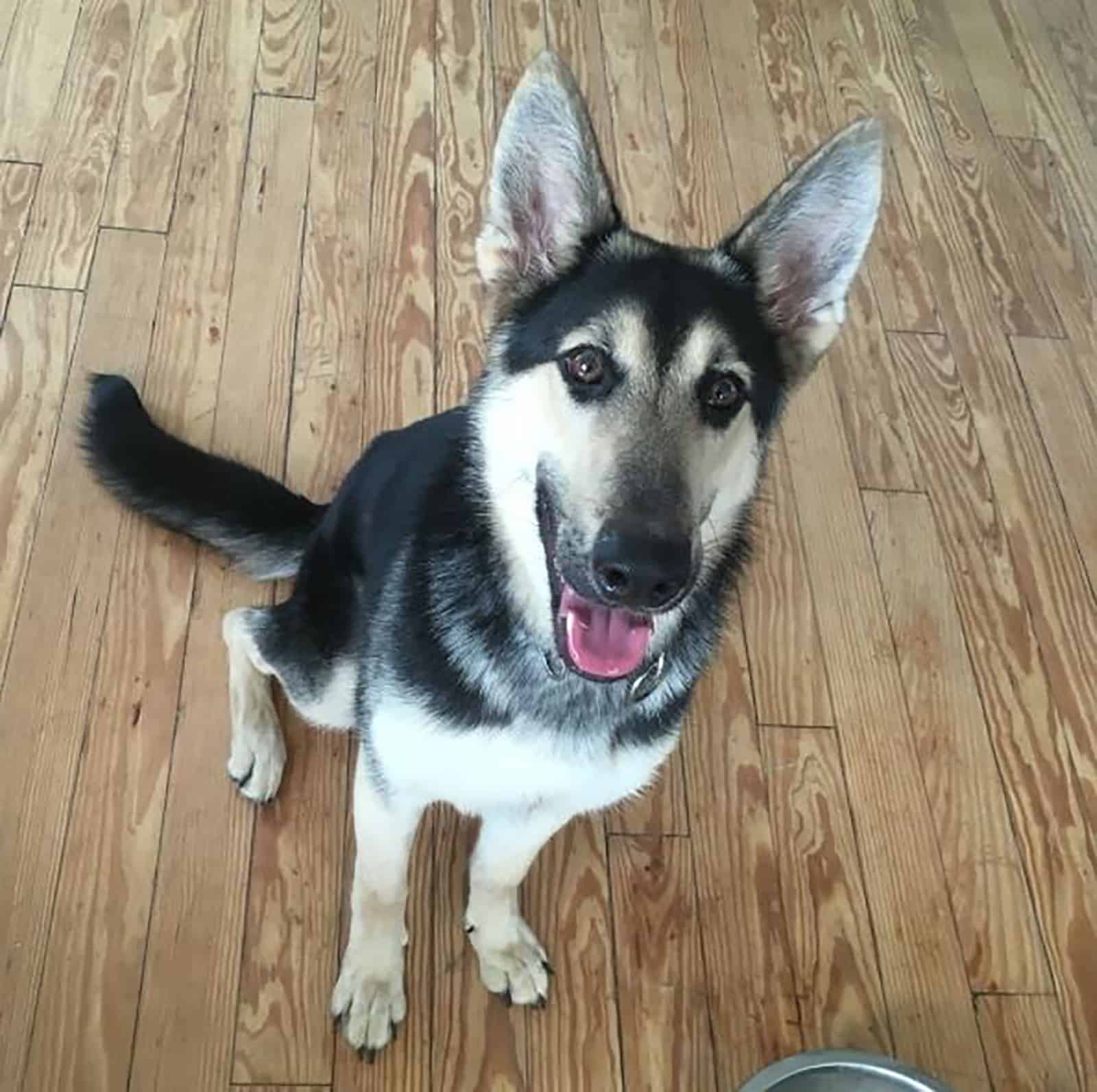
Photo from: @navietheminishepherd
Miniature German Shepherds usually live up to 15 years, which is longer than standard German Shepherds, which have a lifespan of seven to 10 years.
There are several reasons why this happens. Many people agree that it has to do with the fact that they are a mixed breed, and they have something called hybrid vigor, which is basically the increase in certain characteristics over those of their parent’s breeds… in this case, a longer lifespan.
Some other scientists argue that it is possible that smaller dogs can live longer – or, it is better to say that they age slower than larger dogs. Many larger breeds are said to grow faster and, therefore, develop age-related diseases much sooner.
Even though they may live longer than purebred German Shepherds, they are still susceptible to many health issues that are related to their parent breeds.
Health Problems
Hip & Elbow Dysplasia
Almost 20% of all German Shepherds are said to develop elbow and hip dysplasia at some point in their life, making it one of the most common diseases that Miniature German Shepherd dogs can inherit.
Dysplasia is related to the malfunction of joins that can happen in the socket or the ball, or even both.
Depending on the severity, this disease can be very expensive to treat, requiring a special diet, medicine, or even surgery in the worst-case scenario.
Bloat
Bloat (or Gastric Dilation-Volvulus) can be a life-threatening disease if it is left untreated.
It occurs when the dog’s stomach fills up with gas after eating too quickly, which then can cause breathing problems, stomach twists, and eventually death.
This usually develops very quickly, and there are no evident signs, so it is always considered an emergency because it can quickly result in the dog dying.
Degenerative Myelopathy
Degenerative Myelopathy is usually seen in middle-aged and senior GSDs, and it can also be seen in German Shepherd mixes.
This is a genetically inherited condition that affects the spinal cord, which can result in limb weakness and, in the worst case – paralysis.
Unfortunately, this is a progressive disease for which there is no cure yet. There are some treatments that can help ease the pain and discomfort, but once it starts, the symptoms will only worsen over time.
Megaesophagus
Megaesophagus is a disorder in which the dog’s esophagus dilates and becomes unable to pass food into the stomach. Usually, dogs will start vomiting when eating solid food.
While there is no cure for this disease, the good thing is that it can be managed with a liquid food diet and an elevated feeding regime.
Hemophilia
Out of all breeds in the canine world, German Shepherds are the breed of dogs that are most likely to suffer from hemophilia.
This is a genetic disease that causes the dog’s blood not to clot properly, so even a small cut can be fatal for these pups.
There is no cure for this disease; however, dogs with hemophilia can live a normal and healthy life if dog owners are careful enough not to let them get injured or exercise too much.
Epilepsy
Epilepsy is the most common neurological disorder in dogs, and it is characterized by repeating seizures that do not have a known cause (no brain injury or disease).
The seizures come in the form of twitching, shaking, spasms, convulsions, and tremors. Fortunately, there are anti-seizure medications that can prevent this from happening in the future.
Progressive Retinal Atrophy (PRA)
PRA is a degenerative disease that affects the cells in the eyes, and it eventually can lead to blindness in dogs.
Unfortunately, there is no treatment for this disease, but the good news is that it’s not painful to dogs, and even if they do go blind, they can still live a long life.
The Miniature German Shepherd Cost
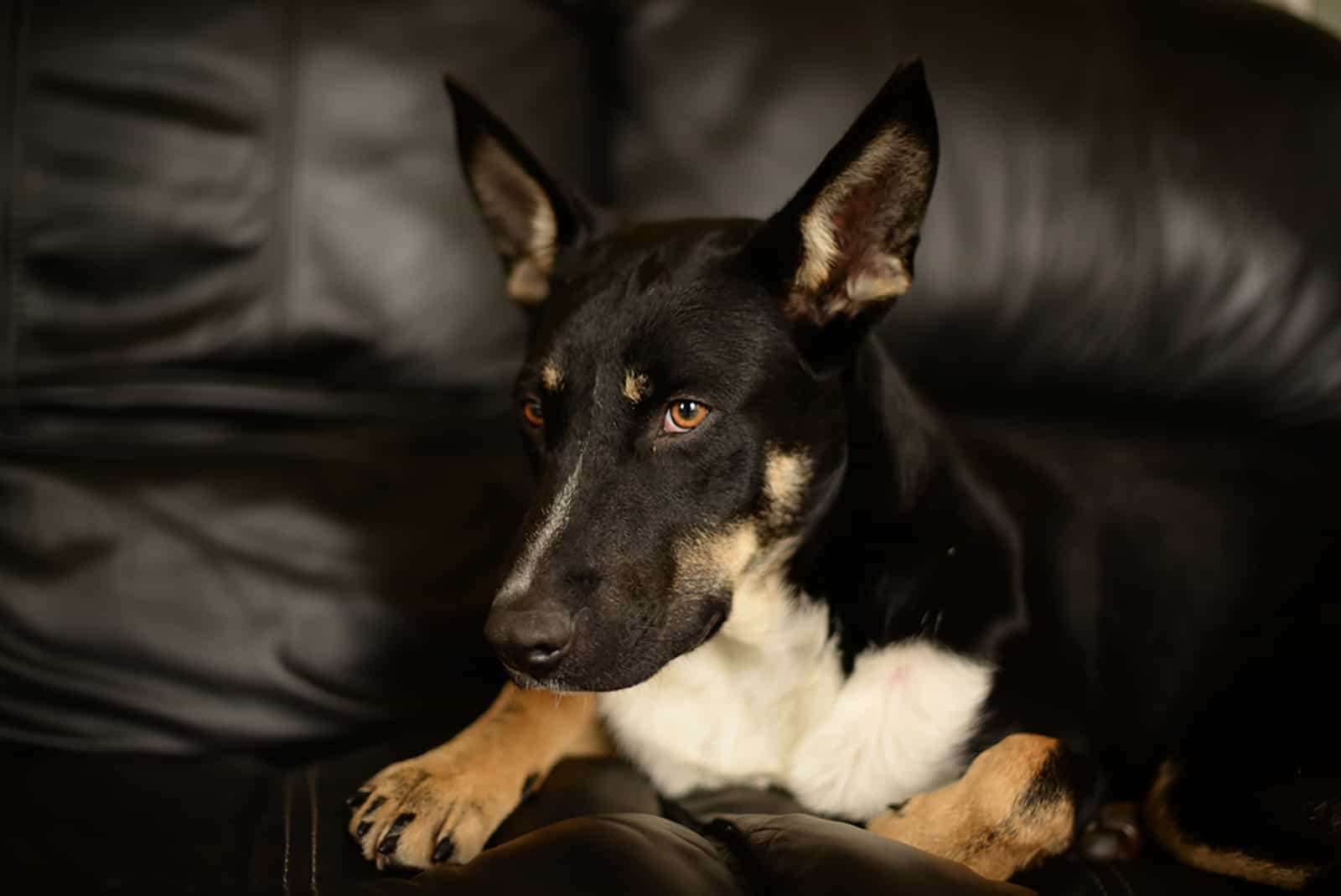
German Shepherd dogs can be very expensive pups to buy. Depending on the location, the breeder, breeding ethics, the bloodline, gender, and age, the price can go to $5,000; however, the average price is usually between $450 and $1,900.
What about small German Shepherd dogs? How much do they cost?
Well, the average price of a Miniature German Shepherd is $1,500, which is a little bit less than a purebred GSD.
If you want to pay a little bit less than this and save some bucks, you can try looking at local shelters where you can perhaps find a mini GSD for adoption.
If you are lucky enough to find one in a shelter, not only will you be paying just a small adoption fee (which is usually between $100 and $300), but you will be giving that puppy a new opportunity for a happy life.
Is The Mini German Shepherd The Right Dog For You?
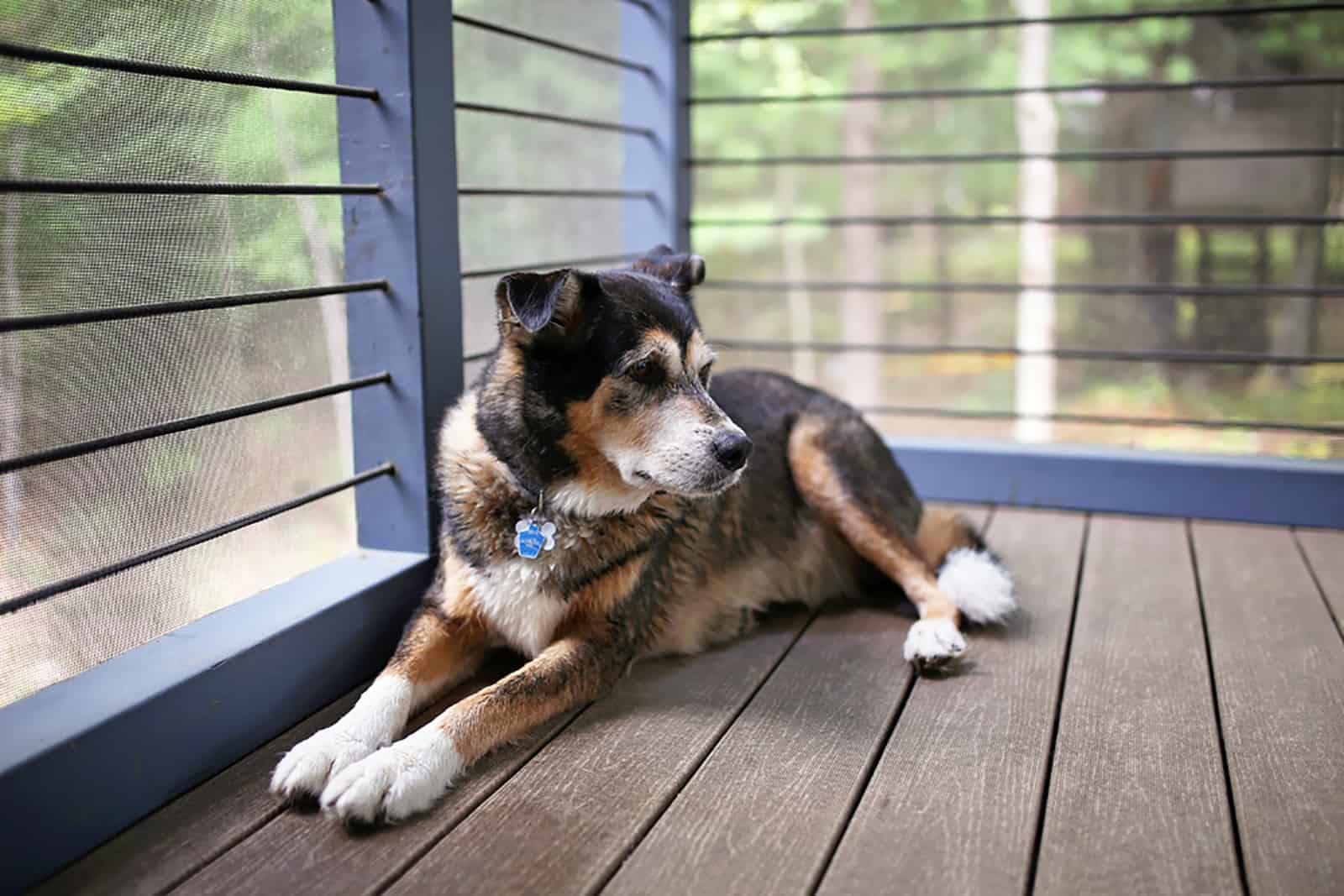
If you are looking for a dog that is going to have all the amazing characteristics of the famous German Shepherd, but comes in a small-sized package that is more manageable, then these Mini German Shepherds are definitely something that you should consider.
They are small dogs for any size of home — whether it is apartment living, a city, or a rural environment, they will be able to adapt easily. They are perfect for people who live in a small apartment and don’t have a lot of space at home.
However, you have to keep in mind that these dogs are very energetic pups that require lots of exercise, so if you are not in a place where you can provide them with that, maybe it is better not to adopt them at all.
If they don’t receive enough exercise, they will become bored and probably cause a lot of mischief around the house, so you’ll also have to deal with destructive behavior.
Other than that, if you choose to have this pooch, I am sure that you will not regret it. Intelligent, loving, great with kids, and absolutely adorable are just some of the amazing qualities that these popular dogs have to offer.
If you choose to have one as your next family member, you’ll definitely find a lot more of their positive traits!
Recommended: 50+ German Shepherd Quotes: Dog Quotes You Forgot You Knew
Where To Find Miniature German Shepherd Puppies
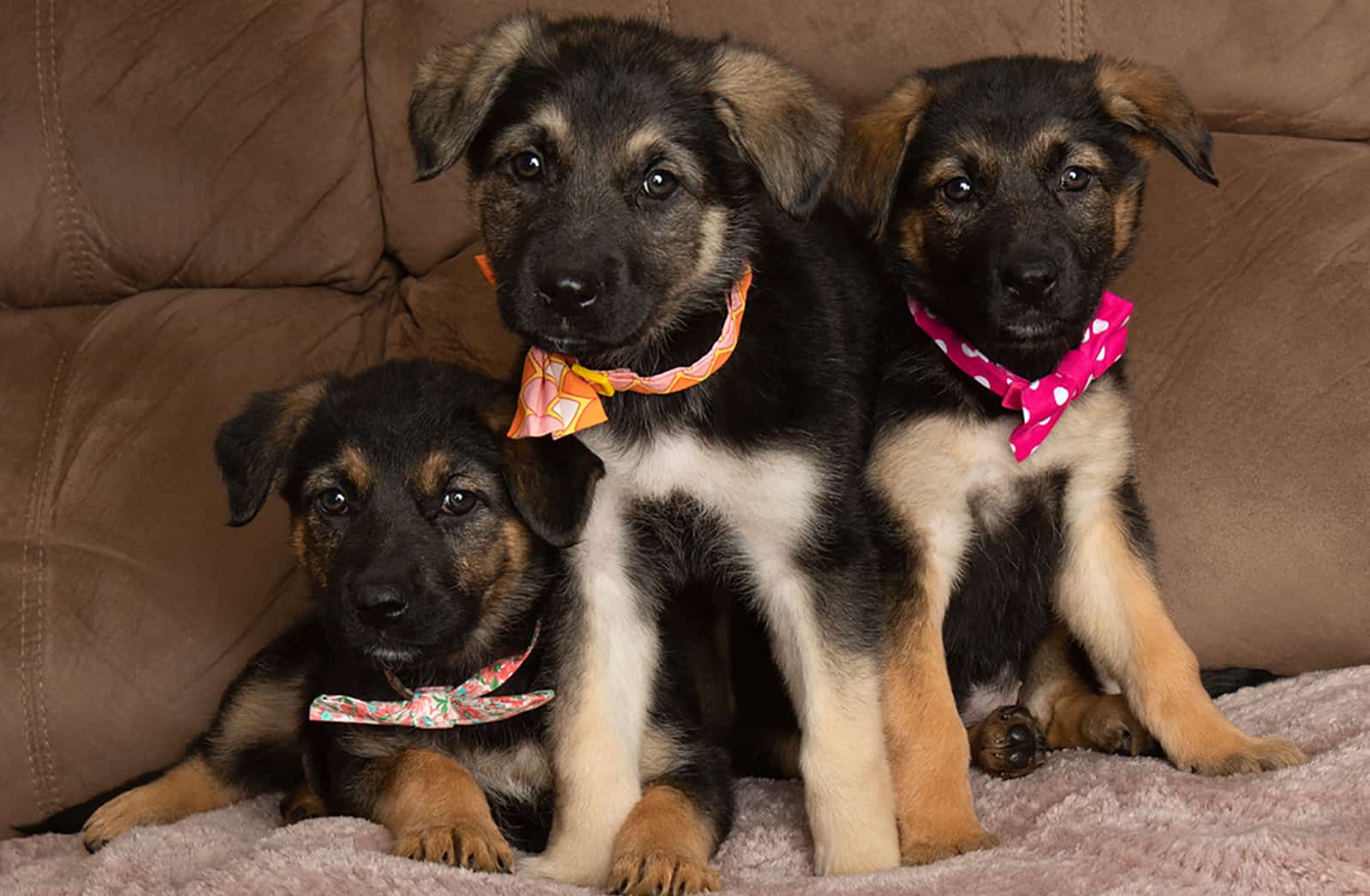
Recently, Miniature German Shepherd puppies have started to become extremely popular, which, on one hand, makes it a little bit easier to find them, but also, on the other hand, it can be a little bit difficult to find a truly reputable breeder who cares about his dogs and makes sure that they are perfectly healthy.
Breeders
When looking for Miniature German Shepherd breeders, make sure to always check if they are actually someone who you can completely trust.
Don’t be afraid to ask questions and check everything that they claim to have and offer. Always double check if the parent breeds and the puppies are health tested and have any health issues.
If the breeder is hesitant to answer your questions or if he is unable to provide health certificates, then it is better for you to walk away and find another place.
A responsible and reputable breeder will be more than happy to answer anything you may have doubts about and provide you with all information about the bloodline, genetics, or health of the puppies. In the end, always trust your gut.
In the meantime, check out some of our top picks for the best German Shepherd breeders across the USA:
• German Shepherd Breeders: The Finest Ones In America
• 11 Best German Shepherd Breeders In Florida
• Top 5 German Shepherd Breeders In New York + More!
Rescues
Alternatively, you may also find Miniature German Shepherds for adoption in your local rescue or animal shelter.
Unfortunately, since these dogs are becoming more and more popular, there are higher chances that you will be able to find them in such places.
This is a much cheaper alternative to getting a puppy from a breeder since you only need to pay an adoption fee, which is usually between $100 and $300.
This way, you are also doing an honorable deed and giving one dog a new chance for a forever home.
See also some German Shepherd rescues in the USA, which may also have Miniature German Shepherd dogs to adopt:
• German Shepherd Rescues In Wisconsin: Top 8 Picks For 2022!
• Top 5 German Shepherd rescues in Colorado!
• Top 3 German Shepherd Rescues In Florida In 2022!
To Sum Up
Here is everything you need to know about this interesting miniature dog breed. These pups can be the perfect choice for many people because of their small size and their many awesome characteristics.
These pups are not purebred, but mixed-breed dogs made by crossing purebred German Shepherds and other breeds, such as Border Collies or Poodles.
However, they will be good protectors of the family, intelligent and affectionate, and with a gentle and loving temperament.
Due to their smaller size, they are easier to take care of, and therefore, more suitable for a lot of people. Because of this, they are also great for people who live in a small apartment, but would love to have a dog with the personality of a GSD.
If you are ready to take on the commitment, these lovely pooches can be a great option waiting just for you. So, do you like the Miniature German Shepherd breed? Could it be your next family member? Let us know!
